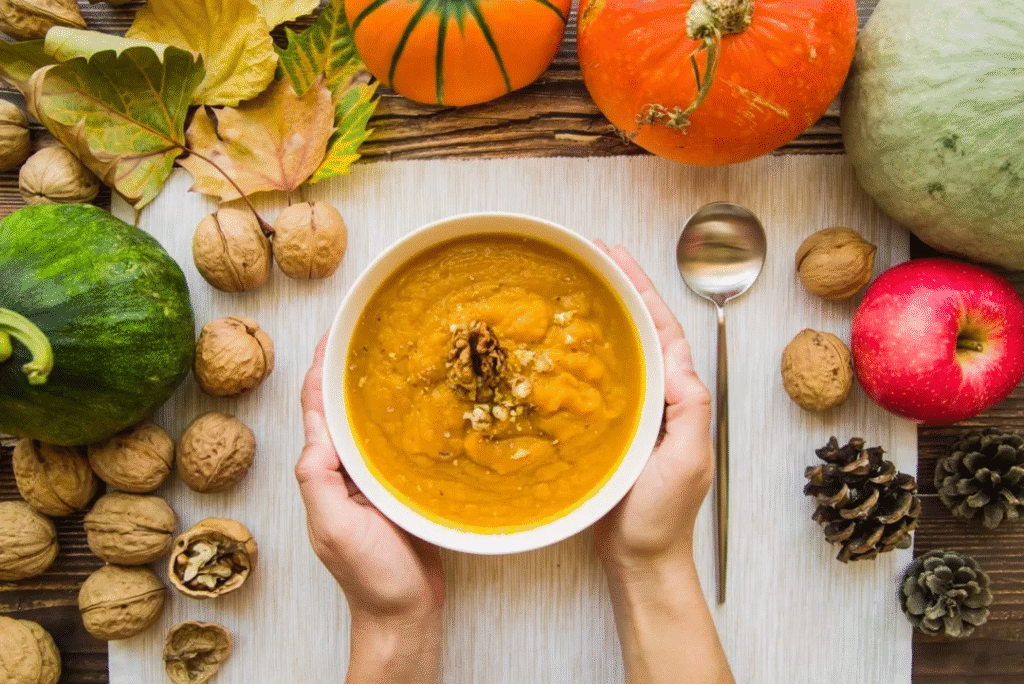Autumn’s Hidden Effects on Our Well-Being
We all behold the golden leaves falling, but Autumn’s shorter, cooler, and windier days do more than transform the landscape—they subtly affect how we feel within. Both Traditional Chinese Medicine and Ayurveda (the ancient sister science of yoga) instruct us that being in harmony with the natural rhythm of each season is the key to health. And the best way to achieve it? A simple principle: opposites attract balance.

How Food Affects Your Energy & Health
What we eat profoundly influences our prana—our life-force energy—dictating our inner balance and overall wellness. Using the “opposites balance” approach, we can make small, conscious changes in our diet to smooth Autumn’s discomforts: the falling temperatures, dry winds, and capricious weather.
1. Opposing the Cold: Warm Yourself Up from the Inside Out
Autumn’s cold can make us stiff and lethargic. To oppose it:
Consume more warming food & spices: Garlic, fresh ginger, cardamom, cinnamon, and turmeric fan your internal flame.
Reduce cooling foods: Leafy greens, broccoli, seaweed, cucumber, and cabbage are best in moderation during this time.
Opt for warm meals instead of cold: Hot soups, stews, and teas are superior to cold smoothies, salads, or ice cream.Go light on raw veggies & pungent flavors: Avoid bitter, pungent, or astringent flavors, which will make you feel even chillier.

2. Battling Dryness: Moisturize & Hydrate
Dry air from the crisp, windy weather can dry out skin and upset digestion. To remain hydrated:
Introduce healthy fats & oils: Use ghee, olive oil, or sesame oil to cook, and include nuts, seeds, and avocados in your diet.
Steer clear of drying snacks: Popcorn, crackers, and dried fruits can exacerbate dryness.
Slow-cooked foods are best: Soups, stews, porridges, kitchari, and steamed vegetables hydrate you.
3. Soothing Autumn’s Unpredictability: Remain Grounded
With weather fluctuating from sunny to stormy, it’s simple to become fragmented. To remain grounded:
Eat grounding, high-protein & high-fat foods: Eggs, cheese, nuts, seeds, and whole grains make you feel solid.
Make meals easy: Few ingredients, simple prep—less stress, more nutrients.
Cook with love & awareness: A calm, thankful mind in the kitchen makes food more therapeutic.
Be consistent: Routine mealtimes ground your body and mind.
Remember: This is only a beginning guide. Adapt according to your body, seasonal foods where you live, and your weather. Most important, pay attention to how you feel—your energy, digestion, and mood will advise you on what suits you best.
